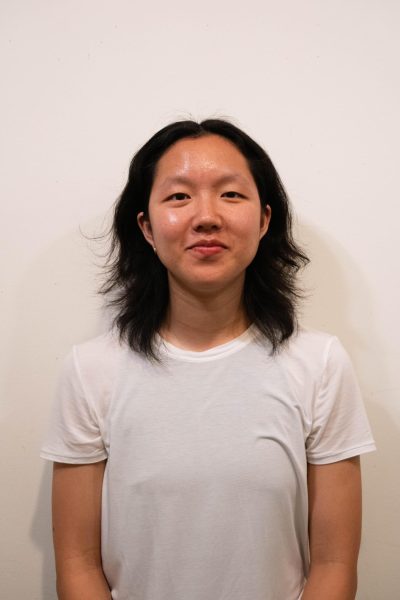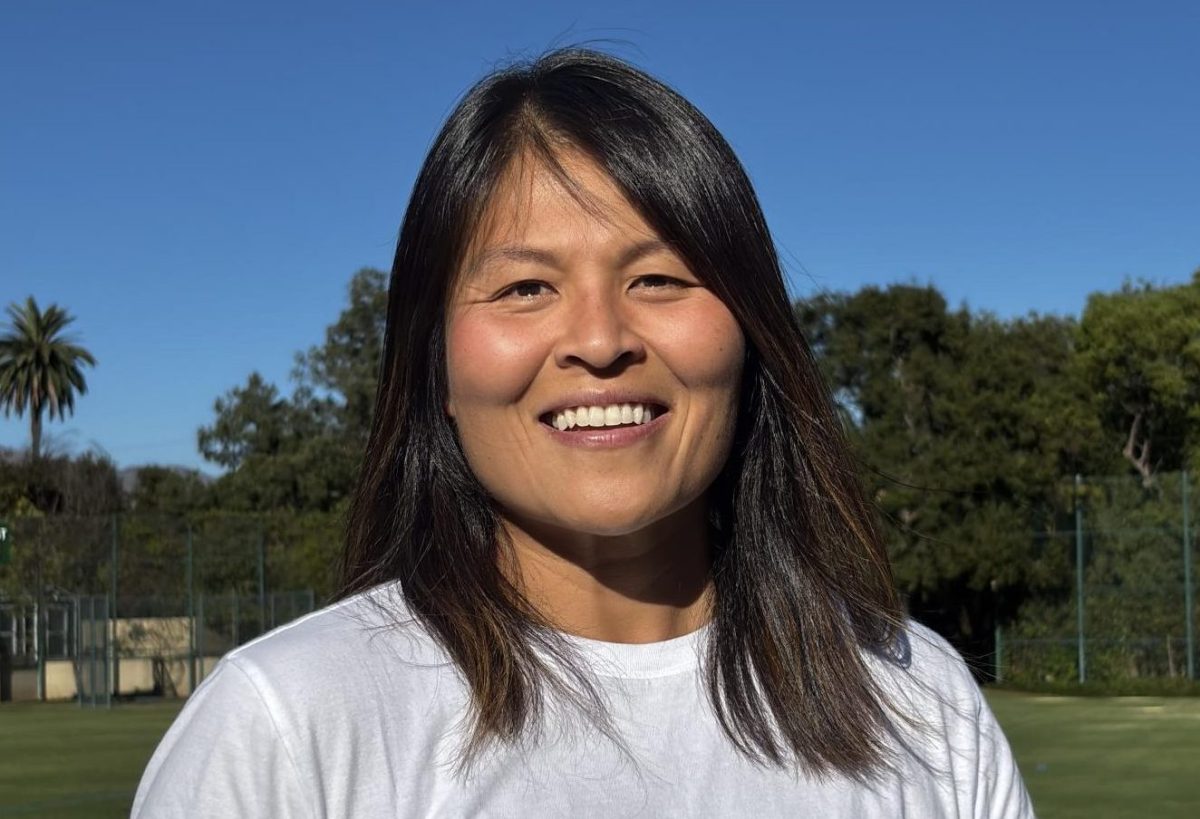This article is a follow-up to the article titled “Westridge Faces Impacts of Trump Policies,” published in the 2025 May Edition.
Last year, Spyglass covered how the Trump administration’s policies—particularly budget cuts, immigration restrictions, and attacks on diversity, equity, and inclusion—affect Westridge students and faculty.
Since then, more legislation, most notably the Big Beautiful Bill, has passed. The bill includes large cuts to Medicaid, the Affordable Care Act (ACA), the Supplemental Nutrition Assistance Program (SNAP), and more. The Big Beautiful Bill also increased funding of over $170 billion towards the Department of Homeland Security, of which $29.9 billion will go specifically towards its subagency, Immigration and Customs Enforcement (ICE). Keeping up with the onslaught of constant changes adds to the already packed workload of being a Westridge student.
In Head of School Ms. Andrea Kassar’s start of school Convocation speech to students, faculty, and parents, she introduced poet William Wordsworth’s poem, “The World Is Too Much With Us,” which warns of the numbness that comes with being overly busy. She admitted that “…The world can often feel too much with me, with us, these days. From many world unknowns and often-dizzying change that is impacting us both very globally and very locally, to polarization and lack of nuance or context, to a world of 24/7 connected technology.”
As a private school with a majority left-leaning population, in a liberal county in one of the most liberal states, Westridge can feel like a haven away from the policy changes affecting public schools. However, the Trump administration’s policies and rhetoric against science research, as well as diversity, equity, and inclusion, have directly impacted Westridge programs and opportunities.
Science Research
Last year, cuts to research funding for universities raised concerns for Upper School Science Teacher Dr. Ryan Skophammer, who runs the Research in Science class. Research labs, like those at Occidental and Caltech, rely on federal funding to host graduate students, who are typically the ones to mentor Westridge students in Dr. Skophammer’s class.
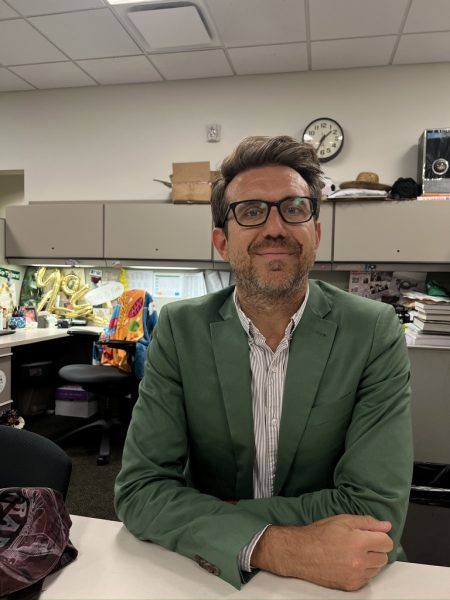
“I would say that my concerns were warranted,” he said. Dr. Skophammer reached out to potential lab mentors over the summer, including labs that have previously hosted Westridge students. Some professors responded that they were willing but unable to host high school students due to loss of funding or concerns about future funding cuts.
Alumna Ada Newton ’24, who conducted marine biology research at the Vantuna Lab at Occidental College for Research in Science during her senior year, found the opportunity incredibly valuable. Now, as she pursues a marine biology undergraduate degree, she said, “I can’t even begin to explain how much that background experience has helped me. I am so grateful that I’ve had the opportunity to become familiar with these research techniques before encountering them in college.”
However, this year, the Vantuna Lab informed Dr. Skophammer that they were “significantly affected by federal funding cuts” and thus unable to continue hosting students. “I am completely devastated that the opportunity with the VRG [Vantuna Research Group] isn’t available anymore,” Ada said. “The time I spent there was super fun, interesting, and helpful. I really wish that more students were able to get that level of hands-on experience before going to college.”

Dr. Skophammer was still able to arrange 11 research opportunities, with just two students still unassigned as of September.* “The cuts to funding weren’t catastrophic, but it did affect us. And [the funding cuts] are just the first wave,” he said.
He is still unsure about what the funding cuts will mean for the future of the class, and added, “That still remains to be seen. Maybe this year is just a preview of what’s to come. I fear this will become a more frequent response.”
Last year, Dr. Skophammer invited Caltech postdoctoral fellow Dr. Brittany Edens to guest speak to the Research in Science class about the current state of science research funding. This year, with the increased appeal of pursuing education abroad, he is considering bringing in a speaker to discuss careers in research outside the U.S.
Dr. Skophammer wants to address current events, especially since his Research in Science class is geared towards introducing students to academia in college and beyond. He describes it as a balancing act: “How do we acknowledge the reality of the world, and how do we bring that into our classes? How do we not say everything’s going to be great but also not say everything’s going to be apocalyptic?”
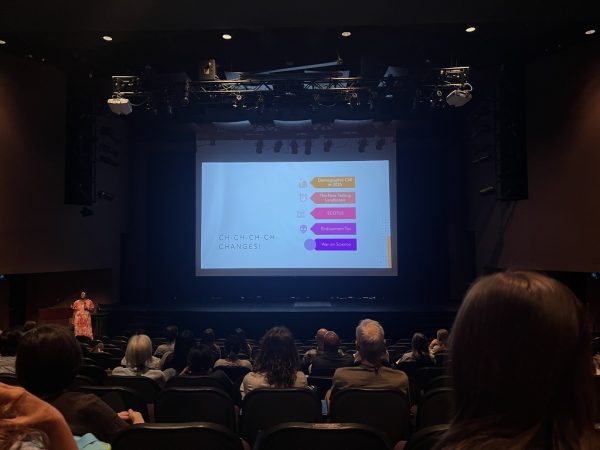
In April of 2025, Spyglass coverage revealed how funding threats to many universities from the Trump administration have complicated Westridge seniors’ college decisions. This year, on September 3, the College Counseling team hosted Caltech Dean of Admissions Ashley Pallie to discuss recent events impacting higher education and specifically college admissions. The goal was for the event to answer questions about how students and families can be prepared, considering the changing landscape. Yet ultimately, Ms. Pallie concluded that the situation would “continue to evolve” as admission officers and students alike continue to monitor the news.
Senior Sage K., who attended the presentation, found it valuable to hear directly from someone in higher education rather than looking for information online. “Of course what she said wasn’t exactly comforting, but the knowledge that most schools are still prioritizing financial aid, research, and diversity was,” she said. But Sage still remains hesitant about the future. “In our current political climate, a lot of what the speaker said was an educated guess. That’s what scares me,” she added.
Diversity, Equity, and Inclusion
For several years, students have attended the Student Diversity Leadership Conference (SDLC), where hundreds of high school students nationwide and from other countries gather to discuss diversity, equity, and inclusion at independent schools. Similarly, faculty and staff have attended the People of Color Conference (PoCC). However, the organization behind the conferences, the National Association of Independent Schools (NAIS), has put the conferences “on pause” for the past two years.
Upper School English Teacher Mr. Max Duncan, attended PoCC and found it to be an affirming and educational experience. However, he noted that the organizers of the conference spent the closing ceremony thanking and saying their goodbyes to important members of the NAIS. Mr. Duncan said, “Everyone looked at each other like, ‘That’s weird, what does this all mean?’” Members of the NAIS received bouquets of flowers, he added, “it felt really awkward– the curtain came down and it was done.” A few weeks later, Mr. Duncan received an email about the conference, as well as the Student Diversity Leadership Conference, being put on hold.
However, Mr. Duncan shared that at the conference, other participants referenced an incident at a previous Student Diversity Leadership Conference, in which speakers at the conference’s open forum made controversial remarks about the Israel-Palestine conflict.
It is unclear if this incident contributed to the cancellation of NAIS conferences. Spyglass coverage of the conference cancellations last year simply referenced the statement on the NAIS website, which claimed the conferences were “paused” and would be re-assessed “given the rapidly evolving political and legal landscape” in the spring after the 2025 inauguration. Since then, no update to the website or announcements have been made. In previous years, students applied to represent Westridge as delegates as early as September 1.
Mr. Duncan expressed his frustrations and emphasized the need for the conferences. “It’s meant to offer assistance even in hard times—and this is a hard time.” He also expressed interest in attending any alternative opportunities available.
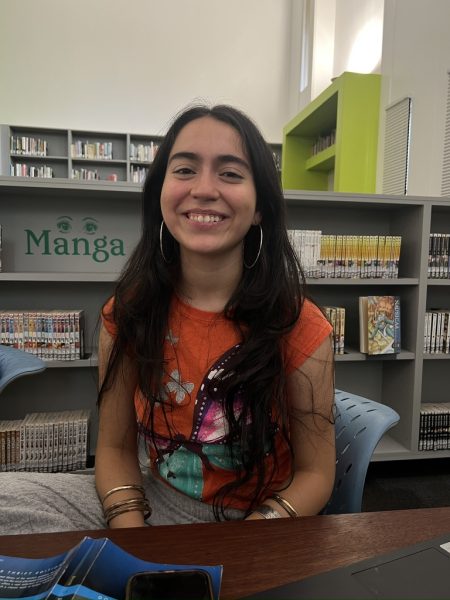
Last year, instead of the NAIS conferences, five Upper School Students attended the NAIS Civic Engagement Summit in Washington, D.C. Senior Avani L. said, “It was really amazing to get to hear different people’s perspectives. Even though we’re so far away, we’re still people experiencing the same problems.” While Ms. Davis was grateful to run the trip to the Civic Engagement conference last year, Ms. Davis believes the opportunities this year focus more specifically on inclusion and, as such, will more closely resemble the original SDLC and PoCC opportunities.
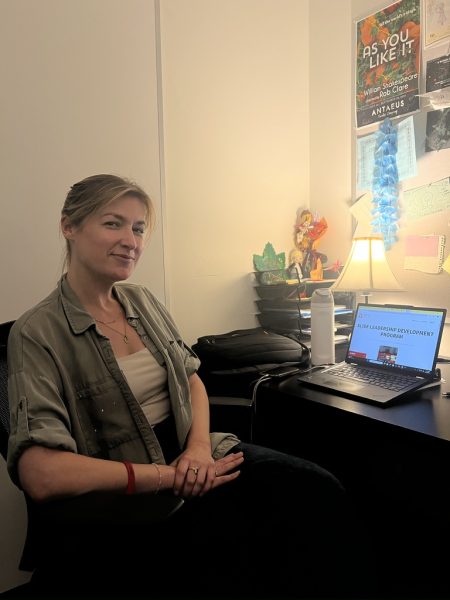
Director of Equity and Inclusion Mr. Ian Tatum is currently on medical leave, but Dean of Student Voices Ms. Julia Davis shared that this year they have arranged for students to attend SLIDE, a leadership development program, and Pollyanna, an all-day diversity, equity, and inclusion conference. Both opportunities are run through Harvard-Westlake, with Pollyanna also including faculty members. “Even though [the trips] will stay local and not national, we hope they will still be a valuable learning opportunity for students,” Ms. Davis said.
Shania W. ’27, who attended SDLC before it was cancelled, hopes the conference alternatives this year will continue to lean into the discomfort of addressing social issues. She said, “My hope is that these conferences will carry out their intended purpose of establishing a space where students can voice their fears, concerns, and recommendations. I want these conferences to not shy away from politics nor treat politics as an uneasy subject, but rather a topic that is widely embraced in conversation.”
*Note: The writer is one of the students in the Research in Science class who has not yet found a lab.




























![Dr. Zanita Kelly, Director of Lower and Middle School, pictured above, and the rest of Westridge Administration were instrumental to providing Westridge faculty and staff the support they needed after the Eaton fire. "[Teachers] are part of the community," said Dr. Kelly. "Just like our families and students."](https://westridgespyglass.org/wp-content/uploads/2025/03/dr.-kellyyy-1-e1748143600809.png)






















